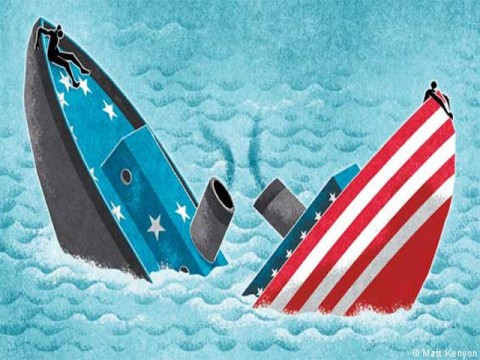“Russia, my lords and
gentlemen, is the decisive factor in the history of the world at the present
time,” observed Britain’s then-Secretary of State for War Winston Churchill in
1919. In his new book, Spies
and Commissars: The Early Years of the Russian Revolution, Oxford historian
Robert Service shows that not only Churchill, but also most of the West, were
aware of the emerging Soviet presence. For a crucial five years, though, the
West remained passive while the new Bolshevik government teetered on the brink
of failure.
Service, who has authored biographies of the holy
trinity of Russian Communism—Lenin, Stalin, and Trotsky—as well as nine more
books on the Soviet Union, is meticulous in his treatment of Communist rule.
The new book’s only downfall is its misleading title, which sounds like a
publisher’s choice. While spies and commissars do factor into the book, those looking
for tales of espionage and intrigue will be disappointed. This is a study of
the early years of the Russian Revolution through both Russian and Western
eyes.
Service begins with the Bolsheviks’ narrow
consolidation of power over the Russian government in 1917. The new regime
became Lenin’s and Trotsky’s own: vicious in a fanatical pursuit of a better
world for their preferred classes of workers and peasants. As a German
Communist noted: “One can’t make a revolution in white gloves. . . it will be
necessary to pass through rivers of blood and mud to get to the destination.”



.jpg)


















